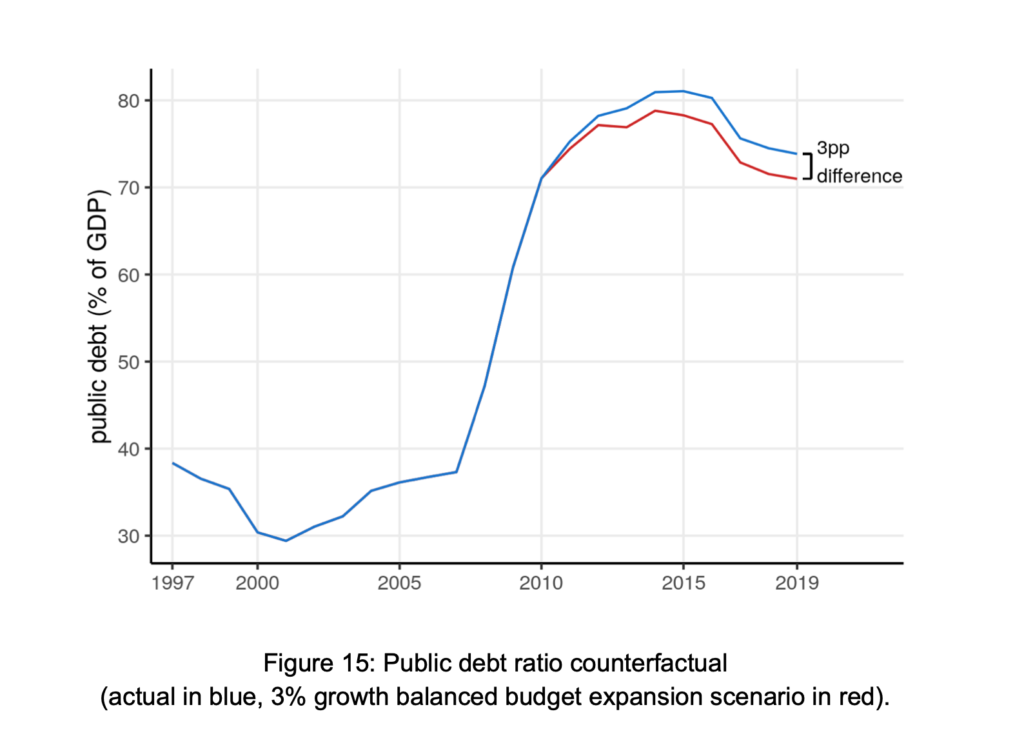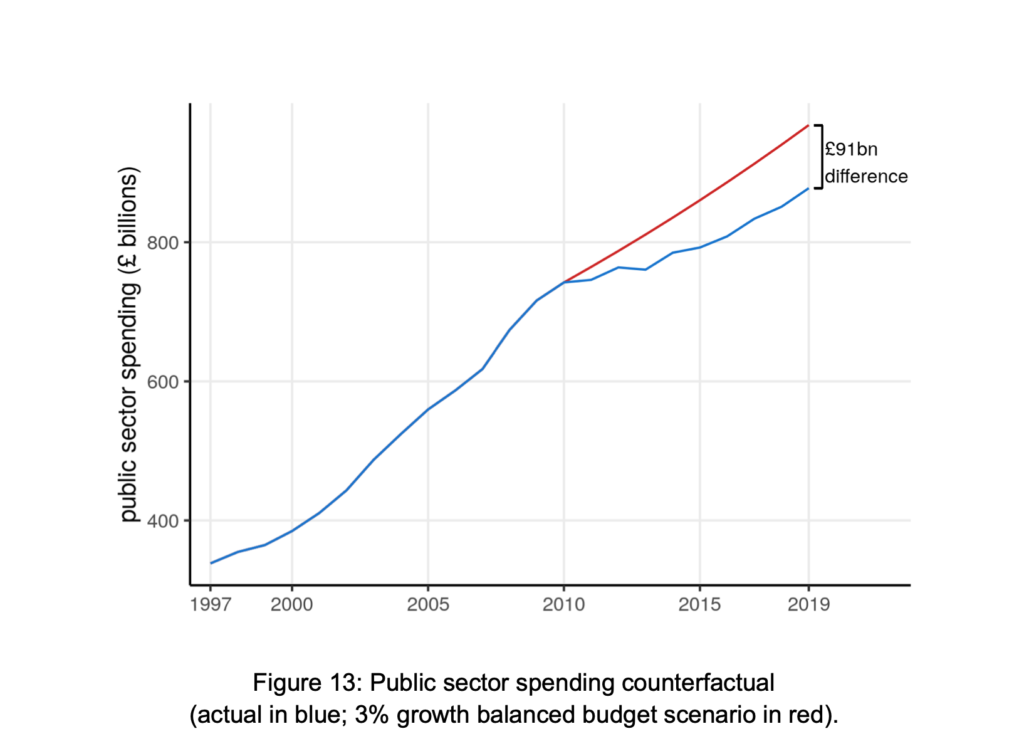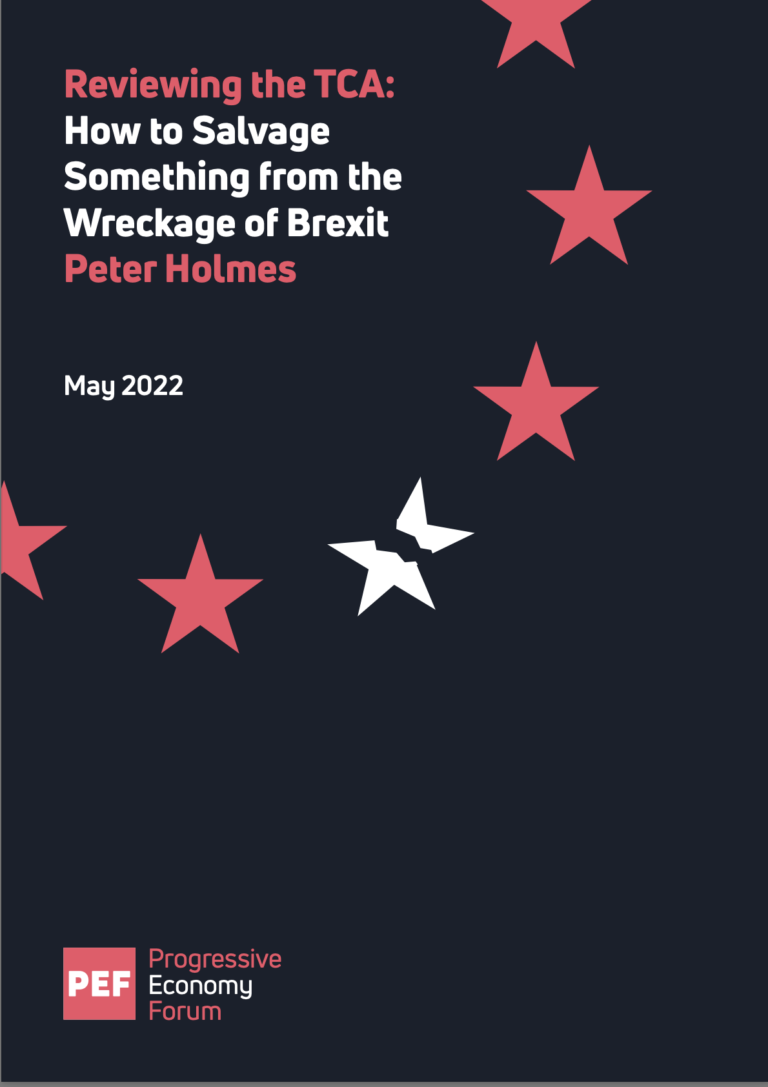A new study from the thinktank the Progressive Economics Forum (PEF), published today, uses official figures to show that the total economic damage inflicted by austerity is significantly higher than previously thought, needlessly cutting more than half a trillion pounds from public expenditure.
Using figures from the Office for Budget Responsibility, the paper demonstrates that governments from 2010 onwards could have maintained historic rates of growth in public spending and still have reduced Britain’s government debt burden by 2019.


The cost of failing to maintain this rate of public spending growth, and instead imposing spending cuts, came to £91bn of lost public expenditure in the final year of the austerity programme, or £540bn over 2010-19.
Despite claims by Coalition and Conservative governments that austerity was necessary to restructure the economy and promote growth, the research shows that the primary economic impact of austerity was through weakening the bargaining position of labour rather than boosting business investment, undermining real wages and job security over the 2010s. “Expansionary fiscal contraction”, as promoted by government supporters at the time, did not take place.
Research author, economist, Dr Robert Calvert Jump, said
Austerity was never a necessity, but a poor economic choice whose effects are now all-too apparent. A return to spending cuts in the wake of the Covid-19 pandemic would inflict a similar, dramatic cost on an economy that has barely recovered from the last round of cuts.
Dr Jo Michell said
We have found no evidence for the claims made by governments implementing spending cuts that austerity would support economic recovery after the financial crisis. Instead of promoting growth by boosting economic confidence, this research shows that the programme undermined wages and conditions at work, and cost public services hundreds of billions of pounds.







